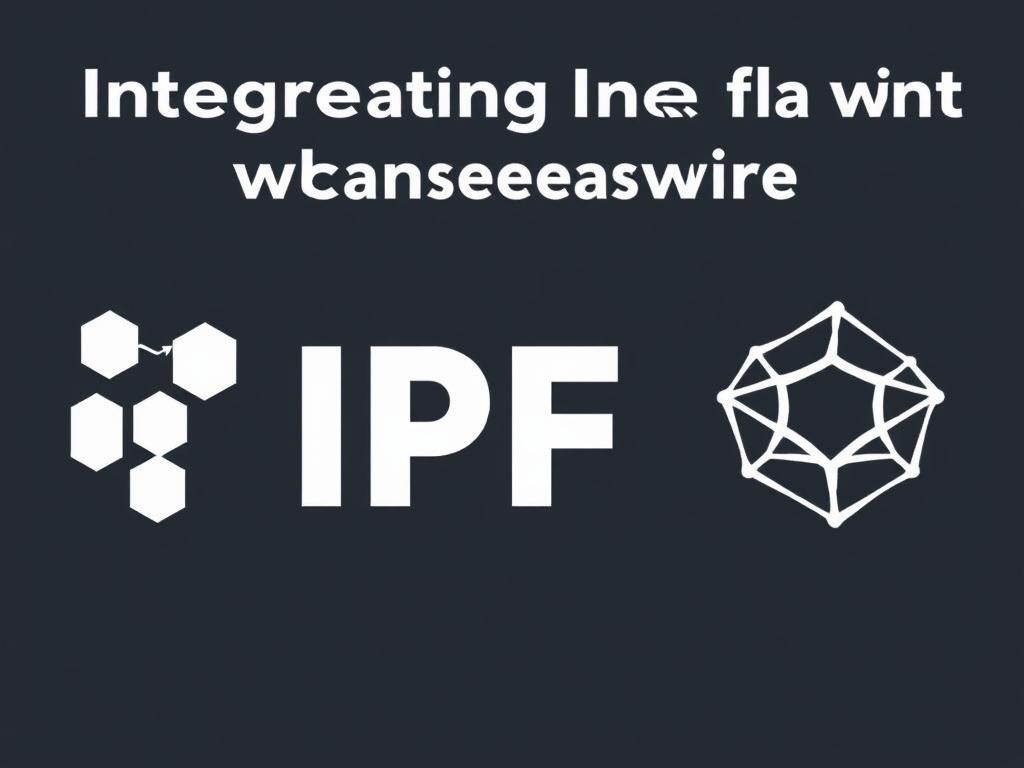Understanding the Basics of IPFS and Meshnet

When exploring the future of the internet, two concepts often come up: IPFS (InterPlanetary File System) and Meshnet. Both technologies aim to decentralize the web, making it more secure, resilient, and user-controlled. IPFS is a peer-to-peer protocol designed to make the web faster and more reliable by distributing data across multiple nodes globally, reducing reliance on centralized servers. On the other hand, a Meshnet is a decentralized network structure where each device or node connects directly or indirectly with others, forming a mesh of communication paths. This structure avoids central points of failure and enhances connectivity, especially in areas with limited infrastructure.
The integration of IPFS with Meshnet takes these ideas even further. By combining the decentralized storage capabilities of IPFS with the robust, peer-to-peer communication of Meshnet, users can build a resilient and censorship-resistant system for storing and sharing data. This approach not only improves data availability but also empowers users with greater control over their information.
How IPFS Works and Its Role in Decentralized Storage
IPFS functions by replacing traditional location-based addressing with content-based addressing. Instead of fetching data from a specific server URL, IPFS retrieves content based on its unique cryptographic hash, ensuring data integrity and authenticity. When you request a file via IPFS, your node asks the network for peers that possess the content copy. These peers then share the data directly with you, essentially creating a distributed storage network.
Some of the key features of IPFS include:
- Content addressing: Files are identified by their cryptographic hash.
- Decentralization: No central servers; files are stored across multiple nodes.
- Version control: IPFS can handle mutable content through IPNS (InterPlanetary Name System).
- Efficient bandwidth use: Files are cached locally and shared peer-to-peer.
Together, these features make IPFS a powerful tool for decentralized storage, addressing issues related to slow load times, censorship, and single points of failure in traditional web hosting.
What is Meshnet and Why Does It Matter?
Meshnets represent a decentralized communication infrastructure. Unlike traditional networks that rely on centralized routers or ISPs, mesh networks allow devices to connect directly with one another in a web-like topology. This setup makes mesh networks inherently robust, as data can travel through multiple paths if one node fails or is blocked.
Meshnets have several advantages:
- Resilience: The network can self-heal and maintain connectivity despite node failures.
- Privacy: Data can be sent across encrypted paths without centralized oversight.
- Accessibility: Meshnets can connect remote or underserved regions without relying on expensive infrastructure.
- Community-driven: Each participant helps maintain the network, fostering grassroots collaboration.
In combination, these aspects make mesh networking an ideal foundation for decentralized applications, especially those requiring peer-to-peer file sharing and storage.
Benefits of Integrating IPFS with Meshnet
Integrating IPFS with Meshnet creates a powerful synergy, fostering a decentralized ecosystem where data is accessible, resilient, and censorship-resistant. Here is what this integration brings to the table:
| Integration Benefit | Description | Impact |
|---|---|---|
| Enhanced Data Availability | Meshnet provides multiple communication routes ensuring IPFS data can be retrieved even if some nodes are down. | Increases uptime and reliability of stored content. |
| Improved Privacy and Security | Encrypted, peer-to-peer connections reduce exposure to centralized surveillance or attacks. | Protects user data and promotes trust. |
| Reduced Dependence on Internet Providers | Meshnet allows devices to connect without a traditional ISP, promoting internet access independence. | Ensures continued data sharing during ISPs outages or network interruptions. |
| Better Scalability | Decentralized architecture distributes load across many nodes. | Supports growth of storage networks with minimal bottlenecks. |
| Increased Resistance to Censorship | Decentralized access paths and content addressing make content harder to suppress. | Preserves freedom of information. |
These benefits illustrate why integrating IPFS with Meshnet is an exciting development for decentralized storage enthusiasts, technologists, and everyday users seeking more control over their digital lives.
Implementing IPFS over Meshnet: A Step-by-Step Look
To unlock the full potential of decentralized storage, one needs to understand how IPFS and Meshnet integration is implemented practically. Here’s a simplified breakdown:
- Establishing the Mesh Network: Devices first need to connect directly with nearby peers using Meshnet software, forming mesh nodes.
- Running IPFS Nodes on Meshnet Devices: Each device runs its IPFS node, enabling content sharing and retrieval over the mesh network.
- Sharing and Accessing Content: Files added to IPFS are hashed and distributed among the participating mesh nodes for faster retrieval.
- Routing and Peer Discovery: Meshnet protocols help IPFS nodes find peers on the decentralized network, enhancing efficiency.
- Securing Communication: Encryption and tunneling ensure data privacy and integrity within the Meshnet-IPFS system.
Following these steps, users can create a decentralized, resilient storage system that operates even in environments with limited or no internet access.
Challenges and Considerations in Integration

While the integration of IPFS with Meshnet holds great promise, it is not without challenges. Users and developers should keep these factors in mind:
- Latency Issues: Mesh networks, especially large ones, can present routing delays affecting IPFS’s responsiveness.
- Node Reliability: Nodes on a mesh vary in uptime, which can impact data availability unless proper caching is enabled.
- Resource Constraints: Devices in a mesh may be limited in computing power or storage, influencing the performance of IPFS nodes.
- Security Risks: Although encryption helps, open mesh networks might be vulnerable if nodes are compromised.
- Network Management: Maintaining a healthy mesh network requires community effort for node upkeep and troubleshooting.
Understanding these challenges helps in designing better systems and expectations for decentralized storage projects combining IPFS and mesh networking.
Real-World Use Cases of IPFS and Meshnet Integration

The practical applications of integrating IPFS with Meshnet are numerous and span various sectors. Some notable uses include:
- Disaster Response Networks: Meshnets ensure communication where infrastructure is damaged, while IPFS stores and shares crucial information.
- Rural and Remote Area Connectivity: Communities deploy meshnets for internet access, leveraging IPFS for decentralized content delivery.
- Secure Communication Channels: Journalists and activists use mesh-IPFS setups to bypass censorship and surveillance.
- Distributed Social Media Platforms: Users share posts and media with resilience against take-downs or platform outages.
- Archival and Data Preservation: Cultural and scientific data can be stored redundantly across mesh-integrated IPFS nodes to prevent data loss.
These examples highlight how integrating IPFS with Meshnet is not just a technical innovation but a real-world solution addressing connectivity, privacy, and information freedom.
Conclusion
Integrating IPFS with Meshnet is a promising leap forward in the quest for truly decentralized storage and communication. This combination leverages the strengths of content-addressed, distributed data storage and robust, peer-based networking to create systems that are more resilient, private, and accessible than traditional web infrastructure. While there are challenges to overcome—including latency, node reliability, and security concerns—the potential to empower individuals and communities with greater control over their data makes this integration a critical technology to watch. As mesh networks expand and decentralized protocols like IPFS mature, the dream of a more open, censorship-resistant, and user-driven internet inches closer to reality. If you’re passionate about privacy, decentralization, or future-proofing your digital life, exploring the integration of IPFS with Meshnet is a compelling step on that journey.
